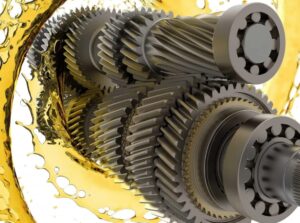Understanding Friction Modifiers: A Comprehensive Guide
Engine oil friction modifier are best engine friction reducer that is essential additives used in lubricants and fuels to enhance performance by reducing friction and wear between moving surfaces. They play a crucial role in the automotive, industrial, and aerospace sectors, where efficient lubrication is vital for the longevity and smooth operation of machinery. This article delves into the intricacies of friction modifiers, exploring their types, mechanisms, applications, and benefits.
what is friction modifier?
Friction modifiers, also known as friction reducers, are chemical compounds added to lubricants to alter the coefficient of friction between two surfaces. They are designed to improve the lubrication performance by reducing friction, wear, and energy consumption. This, in turn, leads to enhanced fuel efficiency, reduced emissions, and prolonged equipment life.
Types of Friction Modifiers
Friction modifiers can be broadly categorized into organic and inorganic types. Each type has its unique properties and applications.
Organic Friction Modifiers
Molybdenum Disulfide (MoS2): This is one of the most widely used friction modifiers. It forms a solid lubricating film on metal surfaces, reducing friction and wear.
Zinc Dialkyldithiophosphate (ZDDP): Commonly used in engine oils, ZDDP provides anti-wear and anti-oxidation properties, extending the life of the engine components.
Esters: Esters are organic compounds that provide excellent lubricity and thermal stability. They are often used in synthetic lubricants.
Fatty Acids: Fatty acids, such as oleic acid, are used to reduce friction in low-temperature applications. They are commonly found in biodegradable lubricants.
Inorganic Friction Modifiers
Graphite: Graphite is a crystalline form of carbon that provides excellent lubrication properties. It is used in high-temperature applications where other lubricants might fail.
Boron Compounds: Boron-based friction modifiers, such as boric acid, offer significant anti-wear and extreme pressure properties.
Ceramic Particles: These are used in high-performance applications to provide superior wear protection and thermal stability.
What is the role of friction modifiers in fuel?
Friction modifiers in fuel work by forming a thin, protective film on the surfaces in contact. This film can be either physical or chemical in nature, depending on the type of friction modifier used.
Physical Film Formation
Inorganic friction modifiers like graphite and MoS2 form a solid lubricating layer that physically separates the contact surfaces. This reduces direct metal-to-metal contact, thereby lowering friction and wear.
Chemical Film Formation
Organic friction modifiers, such as ZDDP, form a chemical film through a reaction with the metal surfaces. This reaction creates a boundary layer that provides anti-wear protection and reduces friction.
Applications of Friction Modifier Additives
Friction modifier market are used across various industries to enhance the performance and longevity of machinery. Some common applications include:
Automotive Industry
Engine Oils: Friction modifiers are crucial in engine oils to reduce friction between moving parts, enhancing fuel efficiency and reducing wear.
Transmission Fluids: They improve the smooth operation of transmission systems by reducing friction and wear.
Gear Oils: In gear systems, friction modifiers help in reducing wear and improving the longevity of the gears.
Industrial Sector
Hydraulic Fluids: They enhance the efficiency and lifespan of hydraulic systems by reducing friction between the moving parts.
Metalworking Fluids: Friction modifiers are used in cutting and grinding operations to reduce wear and improve surface finish.
Greases: In industrial applications, greases containing friction modifiers provide long-lasting lubrication under extreme conditions.
Aerospace Industry
Aviation Lubricants: Friction modifiers are used in aviation lubricants to ensure the smooth operation of aircraft components under extreme conditions.
Space Exploration: In space applications, friction modifiers help in reducing wear and ensuring the reliability of critical components.
Benefits of Using Friction Modifiers
The use of friction modifier in engine oil offers numerous benefits, including:
Enhanced Fuel Efficiency
By reducing friction between moving parts, friction modifiers contribute to improved fuel efficiency. This is particularly important in the automotive industry, where reducing fuel consumption and emissions is a key goal.
Prolonged Equipment Life
Friction modifiers reduce wear and tear on machinery, leading to longer equipment life and reduced maintenance costs. This is beneficial across all industries, from automotive to industrial and aerospace.
Improved Performance
In high-performance applications, such as racing or aerospace, friction modifiers help in achieving optimal performance by reducing friction and wear.
Environmental Benefits
The use of friction modifiers can lead to reduced emissions and improved energy efficiency, contributing to environmental sustainability. Biodegradable friction modifiers, such as esters and fatty acids, offer additional environmental benefits.
Challenges and Considerations
Best friction modifier offer significant benefits, there are challenges and considerations to keep in mind.
Compatibility
It is essential to ensure that friction modifiers are compatible with the base lubricants and other additives. Incompatibility can lead to reduced performance or even damage to the machinery.
Cost
Some high-performance friction modifiers, such as ceramic particles and boron compounds, can be expensive. The cost-benefit analysis should be conducted to determine their feasibility for specific applications.
Additive Interactions
Friction modifiers may interact with other additives in the lubricant, potentially affecting their performance. Proper formulation and testing are necessary to ensure optimal performance.
Future Trends in Friction Modifiers
The field of friction modifiers is continuously evolving, with ongoing research and development aimed at improving their performance and expanding their applications.
Nanotechnology
Nanotechnology is playing a significant role in the development of new friction modifiers. Nano-sized particles, such as nano-diamonds and carbon nanotubes, offer superior lubrication properties and wear resistance.
Green Lubricants
There is a growing focus on developing environmentally friendly friction modifiers. Biodegradable and renewable materials are being explored to reduce the environmental impact of lubricants.
Advanced Testing Methods
Advanced testing methods, such as tribological testing and surface analysis, are being used to better understand the mechanisms of friction modifiers and improve their performance.
Innovations in Friction Modifiers
The landscape of friction modifiers is continuously evolving, driven by advancements in science and technology. Innovations are not only aimed at enhancing the effectiveness of friction modifiers but also at addressing environmental concerns and expanding their application scope.
Development of Nanoparticle-Based Friction Modifiers
Nanoparticles are at the forefront of modern lubricant technology due to their unique properties. These particles, often smaller than 100 nanometers, can penetrate and form protective layers on surfaces at a molecular level. Some promising nanoparticle-based friction modifiers include:
Nano-Diamonds: Known for their hardness and thermal conductivity, nano-diamonds reduce friction and wear significantly. They are used in high-performance applications where conventional lubricants might fail.
Carbon Nanotubes (CNTs): CNTs exhibit excellent mechanical properties and can form a strong, durable film on surfaces. They are particularly useful in extreme conditions where high pressure and temperature are prevalent.
Metallic Nanoparticles: Metals like silver, copper, and gold, when used as nanoparticles, provide superior lubrication and wear resistance. They are especially effective in applications requiring high thermal stability.
Final Thoughts
Friction modifier additives are essential additives that play a crucial role in friction modifiers market enhancing the performance and longevity of lubricants. Their ability to reduce friction and wear makes them invaluable in various industries, including automotive, industrial, and aerospace. By understanding the types, mechanisms, applications, and benefits of friction modifiers, we can make informed decisions to optimize lubrication performance and achieve better efficiency and sustainability.
Organic friction modifier additives market As technology advances, the development of new and improved friction modifiers will continue to drive innovation in lubrication, leading to more efficient and environmentally friendly solutions. Whether in engines, transmissions, hydraulic systems, or high-performance applications sustainable friction reducers will remain a key component in the quest for better lubrication and reduced wear.
FAQs
Friction modifiers work by creating a thin film on the surfaces in contact. This film can be either physical, as with solid lubricants like graphite, or chemical, as with compounds like ZDDP. This layer reduces metal-to-metal contact, thereby decreasing friction and wear.
Friction modifiers can be categorized into organic and inorganic types. Organic modifiers include molybdenum disulfide (MoS2), zinc dialkyldithiophosphate (ZDDP), esters, and fatty acids. Inorganic modifiers include graphite, boron compounds, and ceramic particles.
Friction modifiers are used in various industries including automotive (engine oils, transmission fluids), industrial (hydraulic fluids, metalworking fluids), and aerospace (aviation lubricants, spacecraft). They are essential for reducing wear and improving the efficiency of machinery in these sectors.
Choosing the right friction modifier depends on the specific requirements of your application, such as operating conditions (temperature, load), compatibility with the base lubricant, and environmental considerations. Consulting with a lubricant specialist can help you select the most appropriate friction modifier.
Yes, friction modifiers can significantly improve fuel efficiency by reducing the friction between moving parts in engines and other machinery. This reduction in friction leads to less energy consumption and better fuel economy.

Radiator Stop Leak UAE: Quick Fix for Vehicle Cooling System Leaks
Radiator Stop Leak UAE: Quick Fix for Vehicle Cooling System Leaks Discover More Introduction: The Unforgiving UAE Climate and Your Vehicle’s Lifeline The United Arab Emirates’ automotive landscape is defined by extremes. Ambient temperatures that regularly surpass 45°C (113°F), coupled with intense urban congestion and long, high-speed desert drives, create a perfect storm of thermal stress for every vehicle. In this environment, your engine cooling system is not merely a subsystem; it is the single most critical component preventing catastrophic engine failure.

What Type of Transmission Oil in UAE Does My Car Need? Your Complete Guide
What Type of Transmission Oil in UAE Does My Car Need? Your Complete Guide Discover More Navigating the vast, sun-baked highways of the United Arab Emirates—from the dynamic urban sprawls of Dubai and Abu Dhabi to the majestic desert dunes and the tranquil mountain passes of the Hajar range—places extraordinary mechanical and thermal stress on every component of your vehicle. While conscientious drivers often prioritize engine oil changes, the vital lifeblood safeguarding the transmission, the complex heart of your car’s

Guide to UAE Turbine Oil Selection Application & Management for Industrial Facilities
Guide to UAE Turbine Oil Selection, Application, and Management for Industrial Facilities Discover More In the hyper-competitive industrial landscape of the United Arab Emirates, where operational excellence directly translates to economic advantage, turbine lubrication represents a critical nexus of reliability engineering and strategic asset management. This comprehensive guide, developed with technical insights from Rumanza Lubricants, provides an unprecedented deep dive into the science, selection criteria, and life-cycle management of turbine oils specifically engineered for the extreme operating conditions of the

Synthetic vs. Mineral Hydraulic Oil in UAE : Which is Best for Your Operation?
Synthetic vs. Mineral Hydraulic Oil in UAE : Which is Best for Your Operation? Discover More Across the dynamic landscape of the United Arab Emirates—from the megaprojects of Dubai Marina to the intricate conveyor systems of Jebel Ali Port, from the massive hydraulic shovels in Al Dhafra quarries to the precision automated lines in Abu Dhabi’s industrial cities—the silent, powerful force of hydraulics is indispensable. These systems convert fluid power into monumental force and precise motion. At the core of

What is a Pour Point Depressant? | Benefits, Uses & How It Works Mechanism
What is a Pour Point Depressant? | Benefits, Uses & How It Works Mechanism Discover More In the intricate world of lubricant formulation, few additives play as critical yet understated a role in cold-weather operability as Pour Point Depressants (PPDs). These specialized chemical compounds are the linchpin that prevents machinery from seizing up when temperatures plummet. This in-depth guide goes beyond the basics, exploring the sophisticated chemistry, detailed mechanism, nuanced benefits, and practical considerations of PPDs. We will also examine the

Guide to Gasoline Engine Oils for UAE’s Extreme Climate: Engineering Peak Performance
Gasoline Engine Oils for UAE’s Extreme Climate: Engineering Peak Performance Discover More In the heart of the Arabian Peninsula, the United Arab Emirates stands as a testament to human ambition, with its engineering marvels and endless highways. Yet, this environment of soaring achievement is also one of the most punishing on Earth for machinery. For your vehicle—whether a nimble city sedan, a powerful family SUV, or a high-performance sports car—the UAE’s climate is a relentless adversary. The choice of engine

What are Polyol Ester Oils & Lubricants – Properties & Applications
What are Polyol Ester Oils & Lubricants – Properties & Applications Discover More In the intricate world of industrial machinery, automotive engines, and advanced refrigeration systems, the choice of lubricant is not merely a maintenance task—it’s a critical engineering decision. While conventional mineral oils have served us for over a century, the demands of modern technology require fluids that can perform under extreme pressure, temperature, and environmental stress. This is where synthetic lubricants, specifically Polyol Ester oils, come to the forefront.